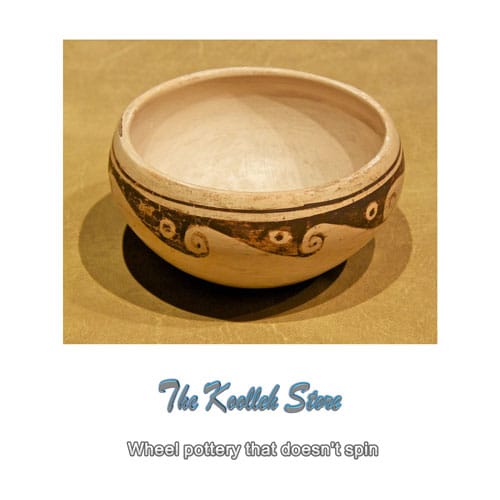Wheel pottery that doesn’t spin

The sad story begins when the soil of the desert accompanies with hatred and makes a flower that is going to spin on the wheel and turn to play the role of a beautiful art that is seven thousand years old in Iran. Tired potter’s feet that spin the wheel to create a more memorable work with soil and water that carries what we call the art of Iranian pottery.
The art we call the art of pottery has a very ancient and extensive history, and few people today do not know the name of pottery and do not subconsciously go back to the distant past. The pottery and pottery that is spoken carve the role of bowls and jars in our minds, and the hands of an artist come to us because he has painted with earth and water, and his feet turn the pottery wheel.
Gone are the days when handmade pottery by Joibari artists could be seen in every home and shop, and today it is offered behind the shop windows of big stores and big cities like Tehran due to the lack of necessary equipment and facilities.
Not so long ago, tunnel workshops with a large number of furnaces from the beginning to the end of Kalamargah Joybar neighborhood were the workplaces of pottery masters such as Gholam Ali Chin Saz, Azizullah Fakuri, Azim Bakhshi, Yousef Talebi and Sobhan Najafi.
Ramazan Ali Chinisaz is a 63-year-old potter from Mazandaran who was born in the small town of Joybar in Mazandaran and still lives there today. Ramezanali is the sixth generation of artist and pottery families, all of whom were skilled potters. He learned pottery as a child from his father. His father was opposed to him sitting behind the pottery wheel, but Ramazan Ali looked at his father’s hands as he worked with the wheel until one day he made a clay bowl on the wheel using his father’s absence.
He ruined the bowl for fear of his father, but he was not disappointed. At the age of 12, when he was alone in the workshop, he made several earthenware bowls. The father returned to the workshop to pick up the tools, and despite his son’s fear, encouraged him. Ramazan Ali’s words awakened in him the taste of the beginning.
Her workshop is located in a corner of an old-fashioned backyard that is very hot in summer and very cold in winter, enjoys working with her children, and her husband is her only companion on this difficult journey. He is also teaching at the Joybar Children and Adolescents’ Intellectual Development Center.
Saying that the pottery of Joybar started with the Chinese family, the Chinese maker said: Previously, there were handicraft complexes in most cities of Mazandaran where we did training, but unfortunately all of them were closed and according to the authorities, the building was put into production. They gave.
He said: If it is based on production, why don’t they provide a production platform so that I don’t have to sell the produced pottery to Tehran at a very low price because of the lack of kilns, and they sell it in their own name after cooking and glazing.
Criticizing the officials who did not even visit him on the day of the handicrafts, the potter stated: I have not received any help from the authorities so far, I can restart my broken furnace for 50 million Tomans, which unfortunately I do not have the capital for.
Noting that I do my job in the traditional way, the Chinese maker noted: Modernization requires facilities, but I can provide the latest designs in the world.
Our only problem is the lack of facilities, he said. Students from all over Iran come here and pick me up, and I have no problem training them. Teach your children more.
Yasser Fakuri is another master potter who continues his ancestral work. He is 35 years old and has been making pottery for 18 years. Customers from Rasht and Anzali mainly buy its products and are unable to train due to lack of space and facilities.
I work really hard because I don’t have the capital, said the potter.
He continued: The facility was supposed to be provided by the Cooperative Office, but unfortunately, due to the lack of land and the location of the facility, it did not belong to me.
Pointing out that I produce about 3,000 pottery during the month, Fakuri said: I am one of the five largest producers in Mazandaran, but unfortunately there is no support for our class.
In the past, the situation was very good and we used to give our products to handicrafts and distribute them all over Iran, but in the past, said the potter. Now we have to look for the market ourselves.
One of my dreams is to have a plot of land on the side of the road where I can produce and sell pottery and train alongside it, he said. If the authorities provide the conditions for work, training and exhibition, we will have no problem. This Friday, Joibar Bazaar, known in the Middle East, will do so by giving artists a booth.
Fakouri pointed out: Joybar has good artists in various fields, but no one knows how to sell their products.

